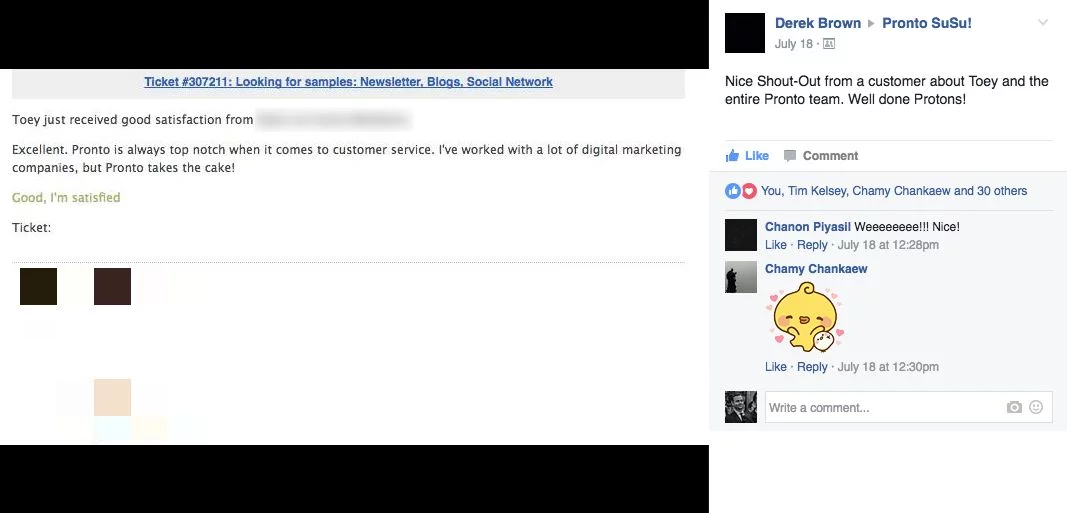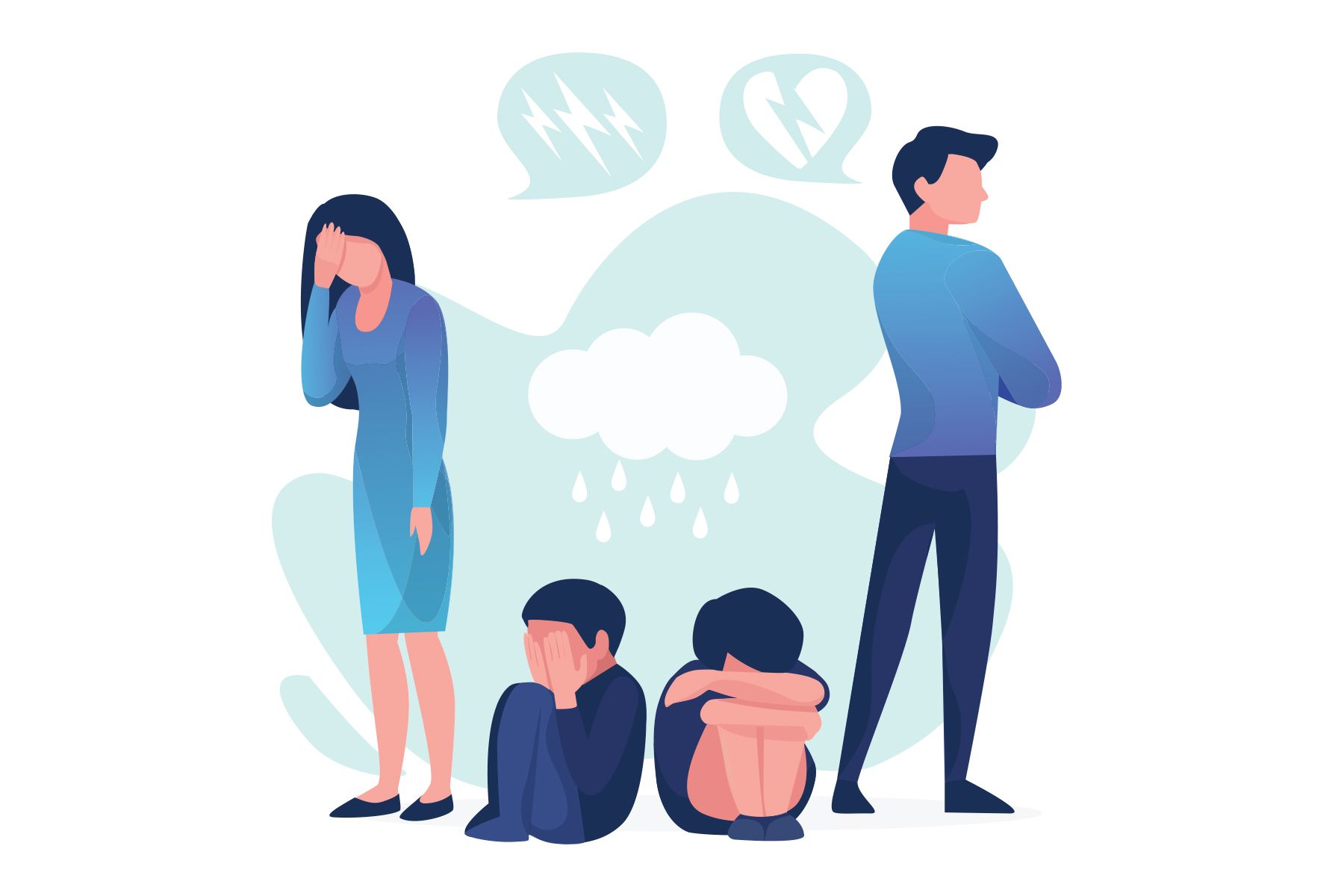Customer service accuracy and dependability can make or break your reputation. Fortunately, there are many ways you can earn and maintain a reputation for accurate, dependable service.
Below are five customer service best practices to help you get started.

1. Keep Information Flowing Both Ways
Communication is key for your team to represent your company competently.
Schedule regular meetings with your representatives to keep them up to date on changes or use software that allows you to share developments in real-time. For example, tools like Slack help teams share information inaccessible, convenient ways.
By making sure that everyone – and I do mean everyone – is in sync, you ensure that your team can answer incoming questions quickly and accurately. And if they don’t know the answer immediately, they won’t be afraid to find someone who can.
Keeping communication lines open can also reduce “ping-ponging” – what happens when a service ticket, or other customer request or issue, is passed back and forth and no one takes real responsibility for fixing the problem. Since ping-ponging results in frustrated customers who don’t receive the assistance they need, it’s important to equip your team with adequate communication tools to resolve the situation.
Finally, it’s important to constantly collect feedback from your team. Have they noticed inquiries cropping up about the same problems, or identified a gap in communications? Listening to and incorporating their feedback will not only help identify customer pain points but can also yield solutions to those problems.
These communications solutions ultimately provide the insight and tools you need to provide a better service to your target audience.
2. Manage Customer Expectations Preemptively
Everyone’s had those customers. The ones who just don’t understand that no, your IT services don’t include washing their dishes, too.
Sometimes, customers ignore what your product can and cannot do, and still give you a bad review for something you just don’t offer. While some are just contentious, many customers are upset because of an honest misunderstanding.
For example, having a sales rep who claims your product can go to the moon and back (when it can’t) is only setting up customers for disappointment. Disappointed customers mean negative reviews, higher attrition, fewer word-of-mouth referrals, and, ultimately, decreased revenue.
Clarifying communication around product and service capabilities can go a long way in preventing these situations.
Here are a few things you can do to ensure that customer perception is close to their expectations:
- Make product and service specs readily available on your website
- Review sales materials to ensure information accuracy
- Train your team thoroughly in product specs
- Identify common misconceptions and address them in your FAQs page
- Offer resources and referrals to customers whose needs cannot be addressed by your products and services
These steps can make a huge difference in your customer’s evaluation of your ability to deliver as promised. The last one is especially effective at engendering goodwill and glowing word-of-mouth referrals.
When things do go wrong, make it easy for your customers to find help: prominently locate your FAQs, your hours of operation, and all types of contact information for customer support on your website.
3. Stay on Task with Checklists and Templates
Dependability and consistency go hand in hand. Checklists can help your employees perform each task consistently to produce the desired outcome.
Without a checklist, it’s easy to miss a crucial step that causes major issues later.
Checklists are commonly employed in professions where lives are on the line (we’d prefer our pilots remember to lower the wheels before landing, thanks), but they can be used to standardize any routine procedures.
Your team will remember what needs to be done while feeling accomplished as they check each item off the list.
At our agency Pronto Marketing, we built custom checklists for each of our services into our dashboard to ensure our team members complete the necessary tasks each time. This could of course be accomplished through different methods, such as a Google spreadsheet or productivity app like Trello.

Pronto Marketing’s digital checklist for setting up call tracker software.
Similarly, you can create templates for jobs that follow the same pattern. Filling in a form is much easier than doing something from scratch every time, and checking things off the list is much easier than trying to remember everything or resorting to a thick company manual each time you need information.
4. Check in Regularly with Customer Feedback
We can all improve the services we offer, so it’s important to listen to what our customers want and need. In addition to keeping in touch with your employees, it’s important to make sure you’re meeting customer needs as expected.
Having a satisfaction tracking system for successful ticket resolution, such as ones powered by helpdesks like Zendesk or Groove, helps you make sure that your team is providing the needed solutions. And when they do, celebrate their successes!

Celebrating customer praise in an internal company Facebook group.
People are motivated by praise and will learn from what they’ve done well better if you tell it to them. Use successful teams as a teaching example to help everyone in your company improve their performance.
5. Build a Supportive Company Culture
Lastly, a happy team with a sense of direction does the best work.
Make sure your team’s needs are being met, particularly ones who are struggling to meet standards. You may find that the receptionist you hired was never given a copy of the company handbook and has been winging it for the last two weeks, or that your previously buoyant sales rep has been sagging due to problems at home.
Build a culture that’s open enough for you to have conversations with employees about what’s hindering them. Give them a comfortable avenue to approach you or other leaders when there’s a problem. Look for ways to ‘cut the red tape’ so that they can focus extra time and energy on delighting customers.
In companies where your team members wear multiple hats, you can work marvels simply by re-emphasizing the primacy of customer service, then empowering them with the freedom to put it first.
Finally, if you push too hard for quantity over quality (“I want you to help x customers this hour!”), your team may sacrifice the quality of their customer interactions in order to meet your demands. People who aren’t rushing to meet a quantity quota will do a better job the first time around. Overall, you’ll have happier customers and you won’t spend precious time sending someone to fix the mess.
Ultimately, dependability and accuracy in your services result from the systems you have in place to empower your team and keep them focused on the customers. Building up a positive culture and resources for your team will take some time, but will have the longevity and constancy you need to be reliable. Contact us for more information.



/lawyer-59da5848396e5a0011db9381.jpg)




/style-guides-for-lawyers-56a5935c5f9b58b7d0dd72ae.jpg)







.jpg)

